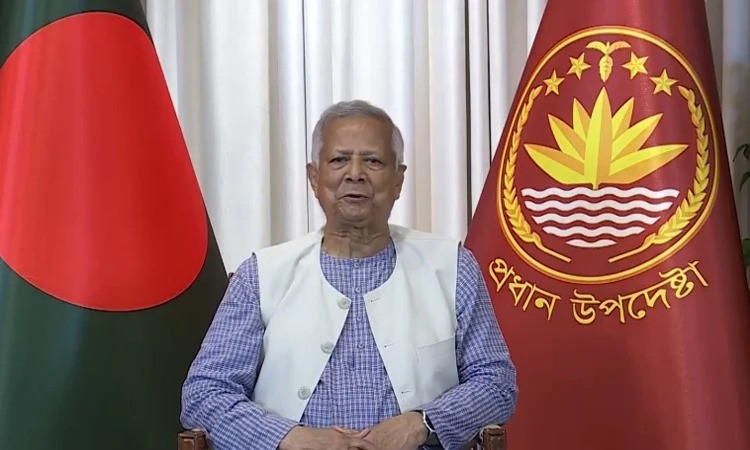Chief Adviser Muhammad Yunus announced that the next national parliamentary elections will be held during the first half of April 2026. The announcement came during a nationally televised address on Friday evening, in which the head of the interim government outlined a clear electoral timeline and reaffirmed commitments to justice and reform.
“After reviewing the ongoing reform activities related to justice, governance, and elections, I announce to the nation that the next general election will be held on a day in the first half of April 2026,” Yunus said.
He added that the Election Commission would soon publish a detailed election roadmap in due course based on this timeline.
During the speech, the Chief Advisor reiterated that the interim administration took office with three core mandates: justice, reform, and the organization of credible elections. He expressed optimism that significant progress on justice and reform—particularly in addressing crimes against humanity committed during the former regime—would be visible by the next Eid-ul-Fitr.
“We want elections that will satisfy the souls of the martyrs of the uprising and bring peace to their souls. We want the largest number of voters, candidates and parties to participate in the next elections. May this be remembered by the nation as the most free, fair and impartial election,” he said.
“After a century and a half, a truly representative parliament will be formed in the country. A huge group of young people will get the opportunity to vote for the first time in their lives. We are committed to the nation to take all necessary steps towards these goals,” he said.
He urged the countrymen to obtain specific commitments from all political parties and candidates in their areas that they approve the reforms on which consensus was achieved in the first session of the next parliament without any cuts.
The chief adviser urged the people to obtain a promise that they will never compromise on the independence, sovereignty, territorial integrity and national dignity of Bangladesh and will not sell the country’s interests to any power outside the country.
“You will obtain specific commitments from them that they will never, under any circumstances, violate your democratic rights and human dignity. You will take a pledge from them that they will run the country with complete honesty and transparency and will keep themselves completely free from all kinds of corruption, partisanship, tender manipulation, syndicate manipulation, extortion, terrorist activities and anti-people activities,” he said.
He said the next election is not just about holding peaceful elections rather it is an election to build a ‘New Bangladesh’, as aspired by the students and common masses.
“In this election, there will be only known parties. They will have their known symbols. But the voter has to find out who the candidates behind this symbol are ready to build a ‘New Bangladesh’ for you. How committed they are?” he said.
One of the most significant parts of his address was the announcement of the upcoming “July Charter”, a national consensus document expected to be finalized next month. The charter, he explained, would be prepared with the participation of all political parties and would reflect common ground on urgent reforms necessary for building a welfare-oriented, democratic state.
“The July Charter is a pledge. It will include a list of reform proposals agreed upon by political parties from the recommendations made by the Reform Commission. By signing it, the parties will publicly commit to implementing those reforms,” Yunus said.
He further stated that the interim government is committed to implementing the urgent reforms outlined in the July Charter before leaving office. For the rest of the proposed changes, the interim administration plans to begin the groundwork so that the next elected government can continue the process seamlessly.
Yunus concluded his address by reaffirming the government’s dedication to a peaceful democratic transition and called for continued unity and cooperation among all political stakeholders.


